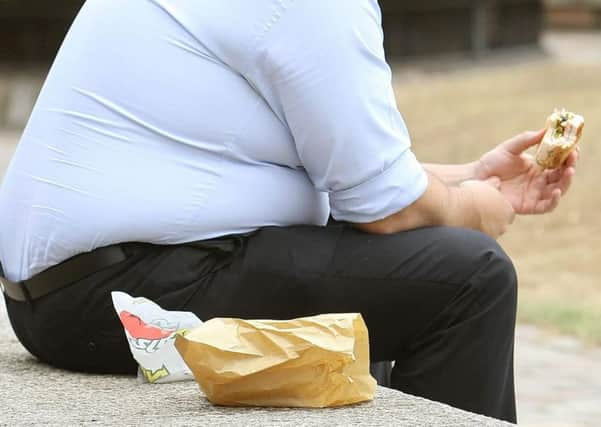Blackpool comes third in list of unhealthiest towns '“ here's why


Its Health on the High Street: Running on Empy report used a scale giving giving points for pubs and bars, dentists, opticians, libraries, leisure centres, museums and galleries, pharmacies, coffee shops and vape shops.
Points were deducted for betting shops, payday lenders, fast food outlets, off licences, tanning salons and empty shops.
Advertisement
Hide AdAdvertisement
Hide AdShirley Cramer, chief executive of the RSPH, said: “While the face of the British high street continues to change, the environmental and economic factors that influence inequalities in health outcomes across the country remain stubbornly intractable.
“Our Health on the High Street rankings illustrate how unhealthy businesses concentrate in areas which already experience higher levels of deprivation, obesity and lower life expectancy.”
Stoke-on-Trent, Sunderland, Northampton, Bolton, Wolverhampton, Huddersfield and Bradford all found themselves in the bottom ten.
Coming top in the healthy stakes was Edinburgh followed by Canterbury and Taunton.
Advertisement
Hide AdAdvertisement
Hide AdThe list was first published in 2015 and was updated this year to reflect the changing face of the British high street.
It added off-licences and the growing number of empty shops to the list of negative features on a high street, while cafes and vape shops were added to the positive influences.
The research found that 4,000 new fast food outlets had opened across the UK in the past five years - predominantly in poorer areas.
Deprived areas now have five times more fast food shops than wealthy neighbourhoods, the RSPH said.
Advertisement
Hide AdAdvertisement
Hide AdIt showed that vape shops have doubled to 2,000 in the last three years, while the number of empty shops on the high street has increased from below 7 per cent in 2007 to 11 per cent in 2017.
The findings come in the wake of the Chancellor’s announcement in the autumn budget of several measures aimed at helping ailing high street shops facing decimation by their online rivals.
Philip Hammond announced that 500,000 small retailers will see a third knocked off their business rates, while a digital services tax will be levied at tech giants with global revenues above £500 million.
A £650 million fund was also announced to improve transport access for struggling town centres and to turn empty shops into homes and offices.
Advertisement
Hide AdAdvertisement
Hide AdKieron Boyle - chief executive of Guy’s and St Thomas’ Charity which works to improve health in the London boroughs of Lambeth and Southwark - welcomed the research.
He said: “There are huge opportunities to be creative in improving the nation’s health.
“This work highlights the important interplay of environmental factors on our health and illustrates how many others, beyond the health and care system, can play a role in supporting people’s wellbeing.”